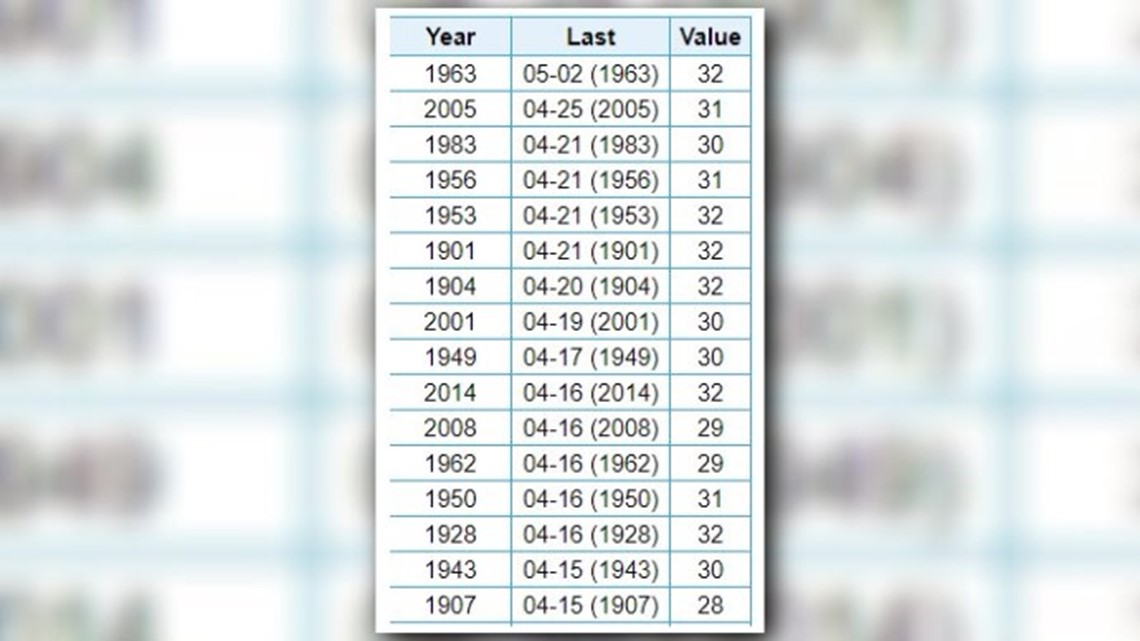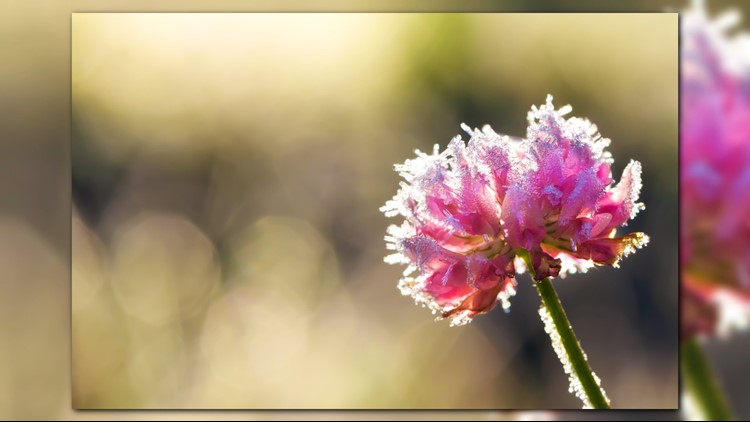CHARLOTTE, N.C. -- I have this rule of thumb for gardeners in the Charlotte region for when to plant your tender flowers and vegetable gardens to prevent them from succumbing to a freeze.
I usually say wait until after April 15 (Tax Day) which is an easy date to remember.
There have been freezes as late as late as May 2, but in 139 years of record keeping, there have only been fourteen times that we have had a freeze after April 15.


There have been many more frosts than that, which can occur even when the temperature is above 32 degrees, but if you are worried about freezing, any time after April 15 is pretty safe.
Based on just those fourteen times, we have hit 32 degrees or below here in Charlotte, you would only have a 6/10 chance of a freeze occurring. That means you are 90 percent safe from a freeze after the date of April 15.
Freezes after April 15 are very rare, but they can still happen like in 2005. If you want to be uber safe wait until Mother’s Day which will pretty much seal the deal.
As of April 6, the forecast for Saturday, April 14 looks warm with a high of 81 degrees and a low of 58 degrees. On Sunday, April 15, there is a 50 percent chance of rain with a high of 71 degrees and a low of 47 degrees.
So what should you plant?
According to a blog by Blackhawk Hardware in Charlotte, the top five vegetables to grow in late spring in the Carolinas are: tomatoes, peppers, green beans, lettuce and squash. South Carolina Living adds cucumbers, asparagus rhubarb, snow peas, onions, leeks, shallots and garlic to the list.
Our State magazine suggests going native when it comes to flowers. Try wood-anemone, Carolina lupine, Dwarf crested iris, Eastern bluestar or swamp milkweed. These plants grow naturally in North Carolina and suit all regions.
In South Carolina, purple coneflower, native sunflowers, cardinal flower, oakleaf hydrangea, Virginia sweetspire and coral honeysuckle will thrive in appropriate conditions, according to Clemson University.



